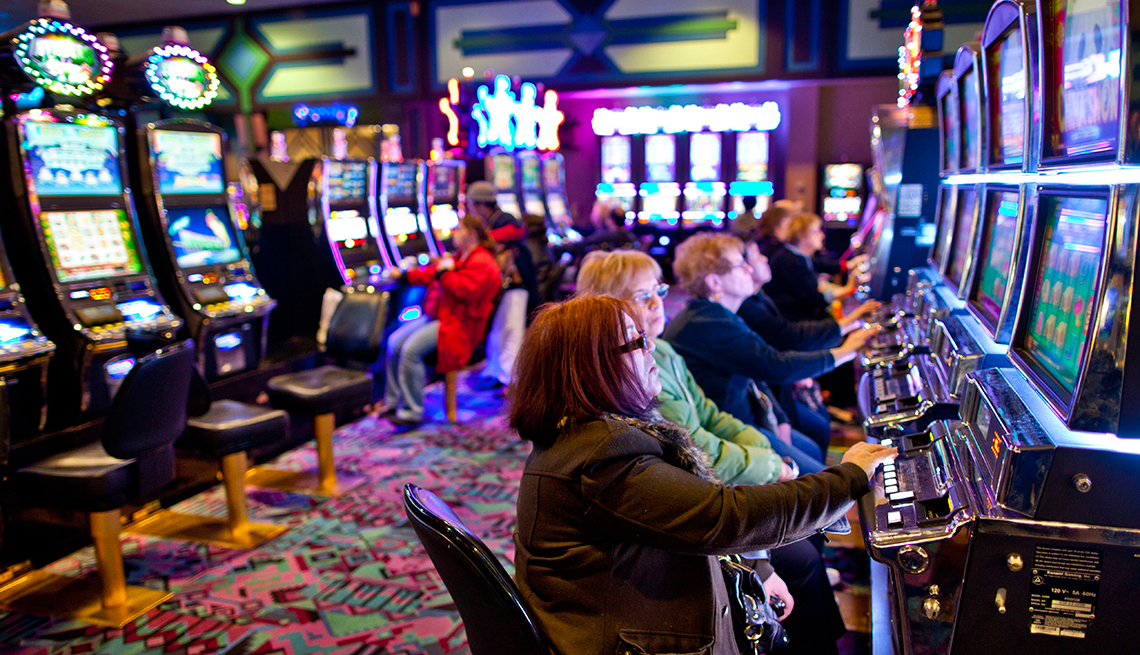
Casino games have long captured the imagination of people around the world, becoming an integral part of both fun and society. From the sparkling lights of Las Vegas to the immersive experience of online gaming, these experiences evoke thrill, danger, and sometimes even a sense of sentimentality. They are beyond just hobbies; they have woven themselves into the fabric of society, influencing everything from film and songs to style and books.
The allure of casino games surpasses the gambling aspect, tapping into wider themes of serendipity, chance, and social interaction. As players gather around a poker table or rotate the wheel of fortune, they engage in an timeless ritual that echoes with our communal desire for adventure and uncertainty. This fascination has led to the emergence of numerous references in cinema, songs, and video games, showcasing how deeply entrenched these pastimes are in popular culture. Whether it is the high-stakes tension of a legendary robbery film or the lively nightlife portrayed in music videos, casino games have carved out a substantial place that reflects our bond with reward.
Cultural Significance of Casino Activities
Casino activities have played a crucial role in social contexts throughout the ages. Stemming from old societies, forms of chance were often linked to ceremonies or events. For example, early iterations of these activities can be traced back to ancient China and the Roman Empire, where die games and betting on results were common pastimes. These activities not only served as leisure but also as methods of connecting people, facilitating relationships among individuals within societies. sin88.name
As societies evolved, so did the complexity and structure of gambling games. The establishment of formal casinos in the 17th century, particularly in the Italian region, marked a major shift in how games were perceived and structured. With designated spaces for gaming, the casino became a community center where patrons from various backgrounds convened. This change contributed to the validation of the industry, transforming it from a mere pastime into an organized industry that influenced the economy and regulations.
The effect of gambling activities on mainstream culture cannot be understated. As they were brought into the limelight in books and film, games such as poker and blackjack became symbols of risk, luck, and strategy. Famous figures and narratives have emerged around these activities, reflecting societal views towards luck, prosperity, and immorality. This interest with casino activities has permeated various forms of entertainment, cementing their place in the public imagination and connecting them to broader cultural narratives throughout the ages.
Representation of Casino Games in Entertainment
Gambling games have long been a popular subject in various forms of media, reflecting both the fascination and complexities of the world of gambling. Films such as Ocean’s Eleven and Casino Royale portray figures who navigate high-stakes environments, showcasing not only the appeal of the casino atmosphere but also the methods and judgments that come with playing popular games like Texas Hold’em and blackjack. These movies often dramatize the exhilaration of winning and the potential results of losing, encapsulating the perils involved in gambling.
TV programs have also explored the universe of casino games, often integrating them into the storyline as a context for character arcs and conflict. Series like Vegas depict the stories of casino workers and patrons, highlighting the vibrant, often tumultuous energy of the gaming floor. Docuseries featuring intense gambling competitions further emphasize the fascination of casino games, drawing viewers into the excitement and tactics involved in each session. Through these depictions, media not only amuses but also prompts conversations about luck, expertise, and the essence of chance.
Video games have increasingly incorporated gambling activities into their development, allowing players to experience the feeling of gambling without financial risk. Titles within the landscape of online gaming often include online slot machines, online poker, and other popular casino games, creating an engaging environment that mirrors traditional gambling. These digital representations make gambling activities accessible to a broad demographic, appealing to both gamblers and those who enjoy the rush of simulation. As a outcome, the representation of casino games in media continues to shape societal views and cultural significance, highlighting their role in society and the cultural landscape.
Impact of Gambling Activities on Communities
Gambling activities have a significant effect on communities, affecting various facets of societal norms and social behavior. They often function as a platform for social interaction, where people gather to enjoy a shared activity. Game nights with friends or trips to casinos become social activities that build connections and create memories. This collective aspect boosts the entertainment value of casino games, making them a popular choice for celebrations and recreational pursuits.
Additionally, casino games have been depicted in numerous movies, TV series, and literature, influencing views and opinions towards gambling and gaming. Icons like James Bond playing baccarat or the intense poker scenes in films have cemented these games in the collective imagination. This representation often idealizes the culture associated with casino activities, attracting new players and impacting trends in both fashion and behavior. These representations can spark curiosity and lead to a more profound exploration of the intricacies of gaming.
Nonetheless, there are also adverse consequences associated with the widespread appeal of casino games. The allure of quick monetary gain can lead to problem gambling and economic troubles for some individuals. Society must contend with these consequences, promoting responsible gambling and awareness of the risks involved. Finding a balance between the entertainment value of casino games with the potential for harm is crucial to ensure that they continue to be a beneficial aspect of our societal fabric.